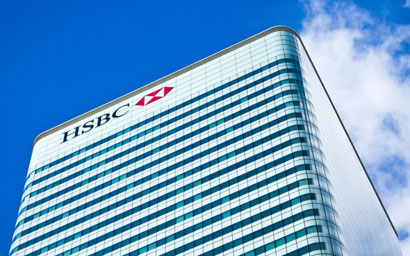At a time when ‘traditional’ fund administrators face competition from specialists in the growing private assets space, HSBC forged a partnership with a third-party loan servicing business and won a “landmark mandate”. Angela Madden reports.
When Aviva Investors handed the administration of its ‘real assets’ business to HSBC Securities Services (HSBC SS), it showed how a fund administration firm that is more associated with less sophisticated investments could also rise to prominence in the more complex world of private assets, such as private equity and private debt.
A great deal of institutional investor cash targeted at public equities and bonds is often mixed with cash from individual investors inside retail-friendly funds that are looked after by third-party administrators and custodians. But institutional appetite for more complex investments shows no sign of abating, and over the past decade, mainstream asset managers have had to build private-markets businesses to keep clients.
The same goes for fund administrators, which have faced competition from private-markets specialists with track records in fund administration for offshore sophisticated investors.
Fund administration professionals at HSBC SS, an administrator with a long history of retail fund administration, would therefore have been popping Champagne corks after being chosen by Aviva Investors to provide services for the latter’s £50 billion (€59 billion) real assets business, which includes illiquid assets.
HSBC SS, like many of its top-ten fund administration peers, may have experience in private assets to draw upon from its associated private banking business, whose clients are no strangers to illiquid investments. But the business gained more help in the form of Mount Street, a service provider for financial firms operating in complex assets.
In short, HSBC SS and Mount Street struck a deal and jointly made a successful bid for Aviva Investors’ real assets business.
Paul Lloyd, the chief executive of Mount Street, is in an ebullient mood following the win, which was announced in July. Aviva Investors is not the first traditional fund house that Mount Street has been involved in, and he expects major growth for his business.
“HSBC SS and Mount Street struck a deal and jointly made a successful bid for Aviva Investors’ real assets business”
The assets it looks after – currently worth €126 billion – could reach €170 billion next year, he adds. This includes a doubling of US assets under management (AuM), which stands at about US$25 billion (€25 billion) for now.
“We won all our RFPs [requests for proposal] last year”, he says, pointing out that Mount Street won the contract to provide services to fund manager Schroders’ real estate business, plus a pan-Europe mandate from Ares Management that includes loan and portfolio monitoring.
The latest high-profile mandate – which was two years in the making and followed a competitive selection process – will see HSBC and Mount Street assume all fund administration and debt servicing functions on behalf of Aviva Investors’ real assets strategies.
Both companies will service the entire real assets debt book, with each providing different support to the asset manager. As Mount Street’s Lloyd explains: “We are looking after the transactional side, and HSBC the fund side. We will provide a range of services including loan administration, asset surveillance and private debt support to the asset managers.”
Tony McDonnell, global head of alternative investments, markets and securities services at HSBC, adds: “HSBC will be providing a wide range of administration and asset services, including fund accounting, transfer agency, fund control, depositary, invoice management and payments, in addition to data services such as data aggregation across asset classes and data access through manager and investor portals.”
Alleviating fears of job losses
Both McDonnell and Lloyd see the deal as “a landmark mandate” that highlights the need for, and availability of, integrated, scalable services embedded in a global bank’s asset servicing business.
Lloyd says Mount Street wants to use the deal to demonstrate to asset managers the benefits of outsourcing and to alleviate fears that outsourcing means people will lose their jobs.
“This is something a lot of companies do not do because there is the belief that if they outsource, they may need to let go of a small or large number of people – but that is not the case,” he adds. “We hired 24 of the Aviva team as part of the transaction and have opened a new office in Norwich [UK]. We now have 35 experts across all sectors there. It is already a big team, and we plan to let it grow.”
Aviva’s mandate created the opportunity to build out the team and create a centre of excellence in Norwich, about 100 miles north of London, says Lloyd. He also underlines how important it is to Aviva, as the region’s biggest employer, that the operations centre will work with universities to provide students with local opportunities. “In the future, this team will likely also be utilised to work with other clients.”
 To asset managers hesitant to outsource because of redundancy concerns, Lloyd is keen to stress that “we redeploy people who have been working on these mandates we win. In fact, this is the third or fourth time we have done this.
To asset managers hesitant to outsource because of redundancy concerns, Lloyd is keen to stress that “we redeploy people who have been working on these mandates we win. In fact, this is the third or fourth time we have done this.
“In the early 2000s, we secured a Morgan Stanley €4.08 billion mandate, bringing on board 15 people. In September 2017, we acquired EAA Portfolio Advisers GmbH from the first German ‘bad bank’, Erste Abwicklungsanstalt. This acquisition included 70 employees and €22.5 billion in AuM.
“We have proven that people do not lose their jobs when asset managers outsource business and that they expand if they take that step. They have the capacity to build their value-added offering and this enables them to focus on performance. Once they do that, they may decide to go up the risk curve.”
The new Norwich team brings total headcount to 215 and adds to Mount Street’s global footprint. Headquartered in London, it has offices in Madrid, Athens, Dusseldorf, Houston, Sydney, Atlanta, Kansas, New York and Dublin.
In addition, the Financial Times recognised Mount Street’s significant revenue growth by adding it to the FT 1000 list of Europe’s fastest-growing companies in 2020.
At HSBC, McDonnell calls this year’s Aviva Investors transaction “the most significant mandate to date for our private assets business”.
He adds: “It is indicative of the demand we see across the globe in this sector. We have created a global model that can be leveraged across regions and plan to grow in all the private market sectors we support [private equity, private debt, real estate, infrastructure].
“In Asia in particular, we are quite advanced in onboarding other large asset allocators in this space.”
Tech credentials
For Aviva Investors – which, incidentally, uses JP Morgan depositary and custody entities across Luxembourg Ucits funds and UK open-ended investment companies – technology played a significant role in the July 2022 deal.
Melanie Collett, managing director, asset management, real assets at Aviva Investors, said at the time of the announcement: “Having a market-leading proposition is key to delivering our significant growth trajectory for our real assets business.”
She added: “By investing in our technology, data and operating model, embedding our key operational requirements with expert service, we can ensure our investment expertise focuses on value-add and performance.
“This will position our real assets business to offer a simple, scalable and efficient model and provide an exceptional service to our clients.”
Mount Street’s CreditHub is a global tech platform that provides loan administration and asset management services.
“One challenge is that different systems have been designed for different asset classes,” says HSBC’s McDonnell. “For example, real estate compared to private debt, with the added complexity that many peripheral functions are managed on spreadsheets.
“This creates a model that is not easily scalable, with higher operational risk and lack of flexibility to respond to data demands and changes.”
He adds: “In terms of technology, real estate has really missed the boat. Companies need to get their head out of the sand in terms of technology or they will lose market share.”
The administrative burden on asset managers, he says, has significantly increased, driven by growing investor appetite for more frequent and detailed access to underlying data.
“Technology will be a key enabler for the asset management industry, particularly in the private assets space, which has a legacy of manual processes and fragmented systems among asset managers,” he notes.
“Technology will be a key enabler for the asset management industry, particularly in the private assets space, which has a legacy of manual processes and fragmented systems”
Lloyd says Mount Street commissioned an independent cyber-security consultancy to conduct vulnerability assessments and penetration tests.
“So far, the findings have been very favourable, comparing the results from the areas tested to the levels achieved within government departments and military, exceeding that of the typical commercial sector. Of course, we are not complacent and will continue to approach the wider topic of security diligently,” he adds.
McDonnell, emphasising HSBC’s technological capabilities, says: “We believe the digital wrapper and delivery of services was a key factor for choosing us to administer Aviva Investors’ real assets business … One of the significant challenges asset managers have faced is the ability to integrate data across asset classes and access and distribute this data efficiently.” HSBC aggregates data at a data warehouse, he adds.
Opportunities ahead
Lloyd sees recession, an increase in inflation and a “shrinking market” as challenges ahead but also makes the point – which applies to the wider asset servicing industry – that technology could provide opportunities to “improve the deal pipeline management processes in the asset manager’s front office”.
It could also deal with longstanding issues such as the automation of manual processes and tracking workflow and queries between managers and service providers. Not to mention the need for ESG data in private markets…
In its approach to servicing asset managers in the new era of private capital, the fund administration business is demarcated as follows: large administrators such as HSBC, with automation capabilities built around high-volume retail funds, versus specialists with deep knowledge of complex fund structures.
In recent years, specialist fund administrators have marketed their capabilities with vigour and even recruited bankers from larger competitors. But if ever there was a potential ‘brain drain’ for the large third-party firms, partnerships with niche providers in complex assets could be a way forward.
© 2022 funds europe





